#lots of poetry
Text
in internet posts it is easy to cut them out of your life. they are hurting you! they aren't listening to you!
they held your hair back. they lent you lipstick. they held your hand at the train station and got you home safe. they rounded on your bully, got loud, said get fucked, spitting-mad in your defense.
they also cut the hair off again. told you that you should really think twice before wearing something like that. took you for granted. took your insecurities and threw them in your face again.
you know logically it should be easy. all the internet advice comments always read it will feel better. like an equation - if a person is rotten, you just remove them. you pull the tooth that's hurting.
but it was never a big flare-up moment. you don't live in a sitcom. they never tried to take your boyfriend or steal from your apartment. they showed up to birthdays and they wrote songs about you and bring you water without you asking. once you found out they carry an emergency inhaler for you, even though you haven't had an asthma attack in years - just in case.
where is the line? people fuck up. sometimes they fuck up badly. sometimes people have raw personalities, like a powerline, and being around them is dangerous. addicting. sometimes they can't help themselves, but you know they're trying. sometimes they are just rough-around-the-edges. sometimes they don't even realize how they sounded when they said that. sometimes it's just - you've both loved each other for so long now, the way this thing hurts goes back to the root.
and that's the fucked up part. you have pushed your fingers against the sweetheart of memory. things these days are electric, tense, harrowing. they didn't used to be. there were a lot of good days in there. sometimes you want to just close your eyes and say can this be over yet? do we still need to be fighting?
doing that would give up any chance you get of getting an apology, but you don't always know that you need an apology, you love them. once they flaked on your birthday party. once they told you to get over it, people are always dying. they also let you crash on their couch for a week after the breakup, handfeeding you when you were so sad you couldn't eat. they are also judgmental about everything, occasionally react to banal statements with an attitude that is weird and fiery. they also love you like a lighthouse sometimes, so strong they cut the storm like lightning.
but the problem is that you might be storm. you might be the thing that needs breaking. what if you are two forces who are desperately, horribly drawn to each other, shaped by the other person's passions, and both good for each other and bad in equal measure.
what if you're both just people, and you're no saint neither.
just cut them off! swallowing the saltwater, you catch yourself in the mirror. you've been shaking more than usual. there's an ache in you that is oblique, loud, impossible to soothe. is this what it looks like? when life is "easier"?
your mouth will always have a hole, is the thing, if you remove the tooth.
#spilled ink#warm up#writeblr#this is about someone specific but feel free to blorbo on main.#tbh this is familial for me so that is an element but it's also about childhood best friends#and probably about ur enemies to lovers blorbo#(but i want to specifically say if ur partner is like this. not necessarily a good partnership lol.)#(the dynamics at play in familial/friend relationships feel equally important and in some ways are HARDER to escape.#bc we can see that this is a potentially toxic romantic foundation.#but in family ? ...... it's toxic and it doesn't stop u from loving them. bc u always have.#and i think that makes it harder. by a lot. which is what this is referencing).#but genuinely and really truly forever feel free to tag ur potentially toxic enemies to lovers on this and all my poetry#here i'll do one for u - adora & catra :x
8K notes
·
View notes
Text



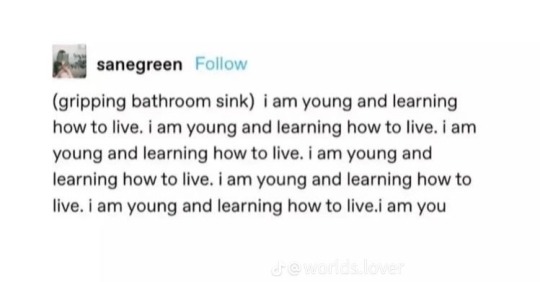



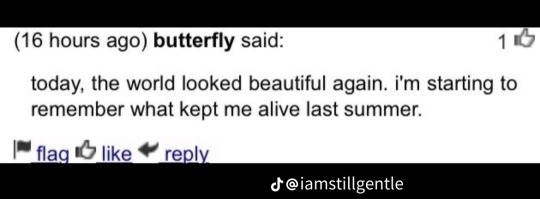
your survival is beautiful
cabindemos tumblr // miraclesandcrosses tiktok // unknown // sanegreen tumblr // wuntrum tumblr // bulldyke-rider tumblr // unknown // iamstillgentle tiktok
#webweaving#poetry#words#art#parallels#text#hopecore#hope core#core core#hope#love#joy#optimism#humanity#u lot seemed to like the last hope core one and i LOVE making these ones#shoutout to iamstillgentle on tiktok bc oh my GOD#tumblr#girl core#comfort
4K notes
·
View notes
Text
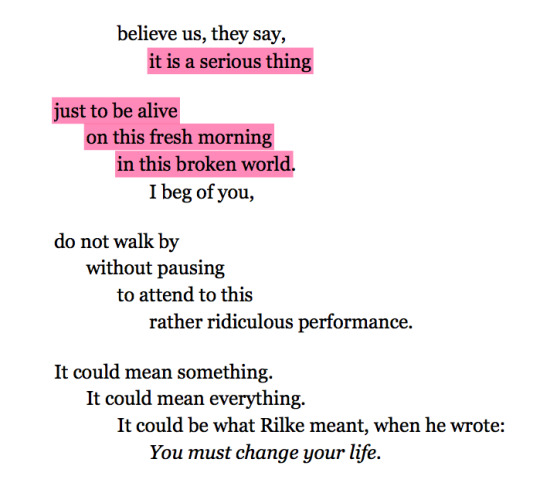


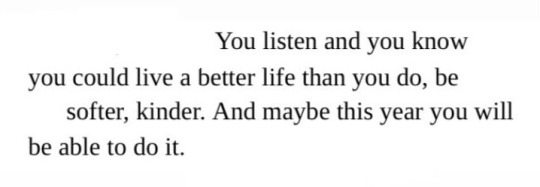
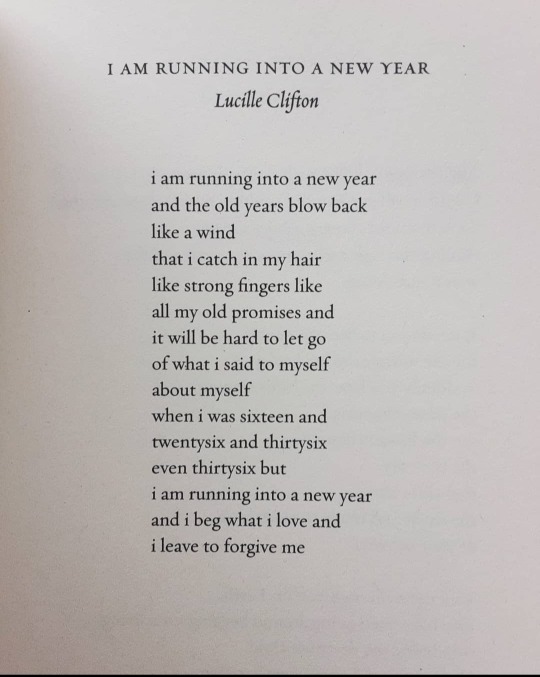



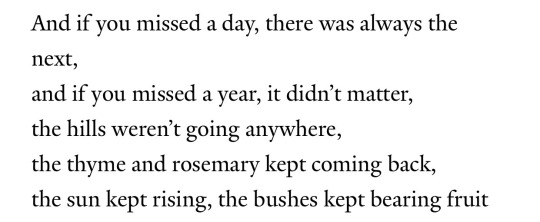
2023
invitation, mary oliver // the unabridged journals, sylvia plath // happy xmas, john lennon // north country, mary oliver // i am running into a new year, lucille clifton // salt, nayyirah waheed // diaries of franz kafka // bird by bird, anne lamott // sunrise, louise glück
#web weaving#parallel#text weaving#happy new year#sylvia plath#mary oliver#poetry#john lennon#lucille clifton#nayyirah waheed#franz kafka#diaries of franz kafka#anne lamott#louise glück#this one wont get a lot of traction but honestly i just needed to read some quotes lol#mmmm posted this one on the tic tac app#we'll see how that goes#500+#1000+#2000+#3000+#4000+#5000+#6000+#7000+#8000+
11K notes
·
View notes
Text

a self-esteem guidebook: learning to embrace your imperfect self (1992) - kenneth a. beavers
"exploding you with my mind"
#i say this a lot#sorry i havent been active like#AT ALL#ive been dealing with some health issues#and also school stuff#writing a research paper about the renaissance#love the renaissance am normal about it#hmu if you love henrician england or hans holbein#anyway#blackout poem#blackout poetry#author#book#poetry
1K notes
·
View notes
Text
None Of You Know What Haiku Are
I'm going to preface this by saying that i am not an expert in ANY form of poetry, just an enthusiast. Also, this post is... really long. Too long? Definitely too long. Whoops! I love poetry.
If you ask most English-speaking people (or haiku-bot) what a haiku is, they would probably say that it's a form of poetry that has 3 lines, with 5, and then 7, and then 5 syllables in them. That's certainly what I was taught in school when we did our scant poetry unit, but since... idk elementary school when I learned that, I've learned that that's actually a pretty inaccurate definition of haiku. And I think that inaccurate definition is a big part of why most people (myself included until relatively recently!) think that haiku are kind of... dumb? unimpressive? simple and boring? I mean, if you can just put any words with the right number of syllables into 3 lines, what makes it special?
Well, let me get into why the 5-7-5 understanding of haiku is wrong, and also what makes haiku so special (with examples)!
First of all, Japanese doesn't have syllables! There's a few different names for what phonetic units actually make up the language- In Japanese, they're called "On" (音), which translates to "sound", although English-language linguists often call it a "mora" (μ), which (quoting from Wikipedia here) "is a basic timing unit in the phonology of some spoken languages, equal to or shorter than a syllable." (x) "Oh" is one syllable, and also one mora, whereas "Oi" has one syllable, but two moras. "Ba" has one mora, "Baa" has two moras, etc. In English, we would say that a haiku is made up of three lines, with 5-7-5 syllables in them, 17 syllables total. In Japanese, that would be 17 sounds.
For an example of the difference, the word "haiku", in English, has 2 syllables (hai-ku), but in Japanese, はいく has 3 sounds (ha-i-ku). "Christmas" has 2 syllables, but in Japanese, "クリスマス" (ku-ri-su-ma-su) is 5 sounds! that's a while line on its own! Sometimes the syllables are the same as the sounds ("sushi" is two syllables, and すし is two sounds), but sometimes they're very different.
In addition, words in Japanese are frequently longer than their English equivalents. For example, the word "cuckoo" in Japanese is "ほととぎす" (hototogisu).
Now, I'm sure you're all very impressed at how I can use an English to Japanese dictionary (thank you, my mother is proud), but what does any of this matter? So two languages are different. How does that impact our understanding of haiku?
Well, if you think about the fact that Japanese words are frequently longer than English words, AND that Japanese counts sounds and not syllables, you can see how, "based purely on a 17-syllable counting method, a poet writing in English could easily slip in enough words for two haiku in Japanese” (quote from Grit, Grace, and Gold: Haiku Celebrating the Sports of Summer by Kit Pancoast Nagamura). If you're writing a poem using 17 English syllables, you are writing significantly more content than is in an authentic Japanese haiku.
(Also not all Japanese haiku are 17 sounds at all. It's really more of a guideline.)
Focusing on the 5-7-5 form leads to ignoring other strategies/common conventions of haiku, which personally, I think are more interesting! Two of the big ones are kigo, a season word, and kireji, a cutting word.
Kigo are words/phrases/images associated with a particular season, like snow for winter, or cherry blossoms for spring. In Japan, they actually publish reference books of kigo called saijiki, which is basically like a dictionary or almanac of kigo, describing the meaning, providing a list of related words, and some haiku that use that kigo. Using a a particular kigo both grounds the haiku in a particular time, but also alludes to other haiku that have used the same one.
Kireji is a thing that doesn't easily translate to English, but it's almost like a spoken piece of punctuation, separating the haiku into two parts/images that resonate with and add depth to each other. Some examples of kireji would be "ya", "keri", and "kana." Here's kireji in action in one of the most famous haiku:
古池や 蛙飛び込む 水の音
(Furu ike ya kawazu tobikomu mizu no oto)
(The old pond —
A frog jumps in
The sound of the water.)
You can see the kireji at the end of the first line- 古池や literally translates to "old pond ya". The "ya" doesn't have linguistic meaning, but it denotes the separation between the two focuses of the haiku. First, we are picturing a pond. It's old, mature. The water is still. And then there's a frog! It's spring and he's fresh and new to the world! He jumps into the pond and goes "splash"! Wowie! When I say "cutting word", instead of say, a knife cutting, I like to imagine a film cut. The camera shows the pond, and then it cuts to the frog who jumps in.
English doesn't really have a version of this, at least not one that's spoken, but in English language haiku, people will frequently use a dash or an ellipses to fill the same role.
Format aside, there are also some conventions of the actual content, too. They frequently focus on nature, and are generally use direct language without metaphor. They use concrete images without judgement or analysis, inviting the reader to step into their shoes and imagine how they'd feel in the situation. It's not about describing how you feel, so much as it's about describing what made you feel.
Now, let's put it all together, looking at a haiku written Yosa Buson around 1760 (translated by Harold G. Henderson)
The piercing chill I feel:
my dead wife's comb, in our bedroom,
under my heel
We've got our kigo with "the piercing chill." We read that, and we imagine it's probably winter. It's cold, and the kind of cold wind that cuts through you. There's our kireji- this translation uses a colon to differentiate our two images: the piercing chill, and the poet stepping on his dead wife's comb. There's no descriptions of what the poet is feeling, but you can imagine stepping into his shoes. You can imagine the pain he's experiencing in that moment on your own.
"But tumblr user corvidcall!" I hear you say, "All the examples you've used so far are Japanese haiku that have been translated! Are you implying that it's impossible for a good haiku to be written in English?" NO!!!!! I love English haiku! Here's a good example, which won first place in the 2000 Henderson haiku contest, sponsored by the Haiku Society of America:
meteor shower . . .
a gentle wave
wets our sandals
When you read this one, can you imagine being in the poet's place? Do you feel the surprise as the tide comes in? Do you feel the summer-ness of the moment? Haiku are about describing things with the senses, and how you take in the world around you. In a way, it's like the poet is only setting a scene, which you inhabit and fill with meaning based on your own experiences. You and I are imagining different beaches, different waves, different people that make up the "our" it mentioned.
"Do I HAVE to include all these things when I write haiku? If I include all these things, does that mean my haiku will be good?" I mean, I don't know. What colors make up a good painting? What scenes make up a good play? It's a creative medium, and nobody can really tell you you can't experiment with form. Certainly not me! But I think it's important to know what the conventions of the form are, so you can appreciate good examples of it, and so you can know what you're actually experimenting with. And I mean... I'm not the poetry cops. But if you're not interested in engaging with the actual conventions and limitations of the form, then why are you even using that form?
I'll leave you with one more English language haiku, which is probably my favorite haiku ever. It was written by Tom Bierovic, and won first place at the 2021 Haiku Society of America Haiku Awards
a year at most . . .
we pretend to watch
the hummingbirds
Sources: (x) (x) (x) (x) (x) (x)
Further reading:
Forms in English Haiku by Keiko Imaoka
Haiku: A Whole Lot More Than 5-7-5 by Jack
How to Write a Bad Haiku by KrisL
Haiku Are Not a Joke: A Plea from a Poet Who Has Had It Up to Here by Sandra Simpson
Haiku Checklist by Katherine Raine
#poetry#haiku#writing#literature#anime life#long post#i want to apologize but i had to get something off my chest#and the thing was. i love haiku#and when i see posts on here about haiku. i get so angy.#well ok i really get more disappointed bc nobody is really engaging with the form on its own terms#anyway i hope you enjoy some of my favorite haiku because theyre in there!!!!!#i didnt really get into the history of haiku. and i also did not get into why i got really into it#but i will say that i was really inspired by Jacob Geller's video A Thousand Ways of Seeing a Forest#which is a lot about translation#(which i mean. as an interpreter AND a poetry-enjoyer. really appealed to me lol)
10K notes
·
View notes
Text



Excerpts from the works of Palestinian poet, Mahmoud Darwish
#thinking a lot about his words these days#free palestine#mahmoud darwish#palestinian genocide#palestinian art#palestine#poem#poetry#palestinian poetry#writers and poets#poems and quotes#writing#art
1K notes
·
View notes
Text
Small things we should cherish more in life:
Staring at the moon from your balcony.
Waking up to the sound of the rain.
Small achievements/success in your life.
Sleeping in a cozy or comfortable bed.
Walking barefoot on grass.
The first sip of coffee/tea/juice in the morning.
Different colors of sky.
Finishing a good book.
Counting stars with the person you love.
Sharing fruits with your friends/family.
#these things matters a lot in our lives#little things#dark academia#light academia#excerpts#fragments#poetry#books & libraries#romanticism#dark academism#light academism#words#classic literature#literature quotes#literature#dark academia literature
4K notes
·
View notes
Text


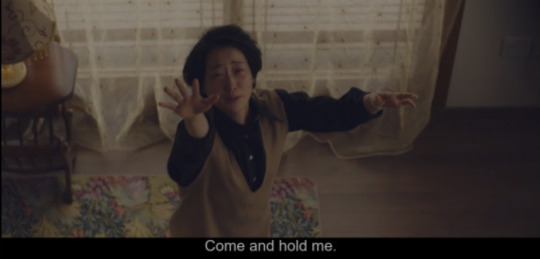


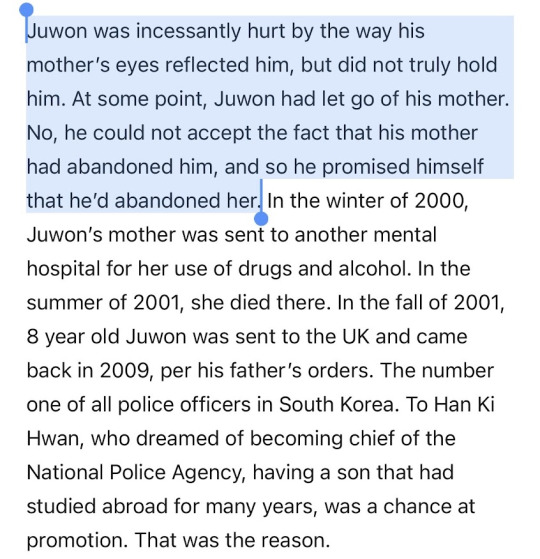



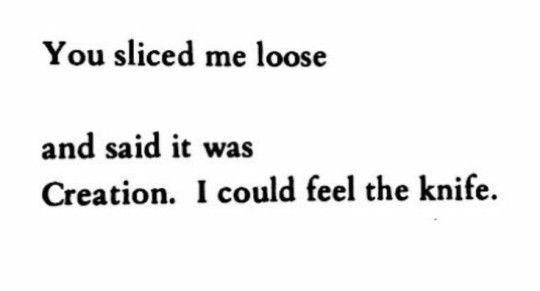
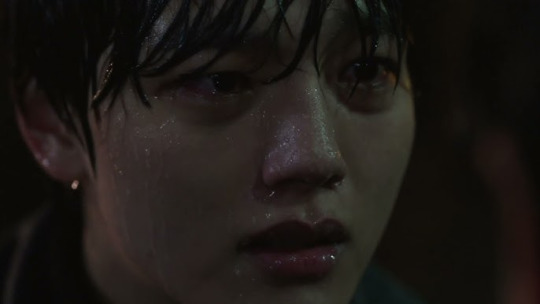

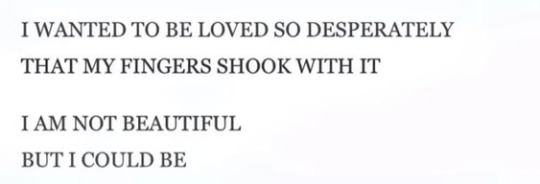


I AM NOT BEAUTIFUL BUT I COULD BE
Chen Chen Poplar Street // pinterest // 괴물 Beyond Evil (2021) dir. Shim Nayeon // Janet Fitch // Taylor Swift seven // @girltwinkabigail // 괴물 Beyond Evil (2021) dir. Shim Nayeon // Mitski Class of 2013 // Taylor Swift You're On Your Own, Kid // Margaret Atwood Selected Poems: 1965-1975 (via @freshberries) // 괴물 Beyond Evil (2021) dir. Shim Nayeon // Salman Rushdie East, West // Emily Palermo // 괴물 Beyond Evil (2021) dir. Shim Nayeon // Desireé Dallagiacomo Sink
#still on my beyond evil bullshit forgive me#feeling a lot of feelings about juwon and his mommy and daddy issues#beyond evil#han juwon#on self#on family#on mothers#on fathers#on love#on heartbreak#poetry compilation#web weave#web weaving#poetry parallels#beyond evil juwon#kdrama#poem#spilled poetry#spilled thoughts#spilled ink#dark academia#poetry#writing#words#dark academia poetry#dark academia quote#chen chen#janet fitch#taylor swift#margaret atwood
811 notes
·
View notes
Text
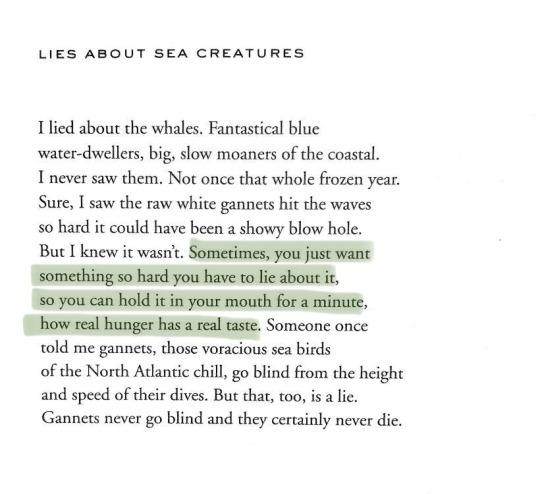
Ada Limón, Bright Dead Things (2015)
#i have been thinking about this poem A LOT this week.#ada limon#poetry#bright dead things#on hunger#on wanting
1K notes
·
View notes
Text

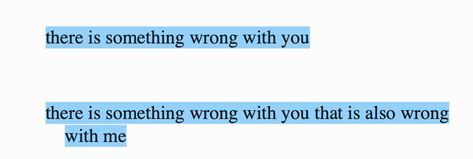







#random web weave tbh#i'm feeling a lot of emotions and tons of angry#web weaving#web weave#lyric parallels#parallels#on anger#on rage#on sadness#on grief#on female rage#female rage#rage#anger#fragments#poetry fragments#poetry#poem#quotes#dark acadamia quotes#literature#lit
2K notes
·
View notes
Text
something something orpheus and eurdiyce and katara doesn't look back at aang in the cave of the two lovers but she does look back at zuko when she leaves him in the crystal catacombs and love is about looking back its about turning around and seeing them even if it's for the last time
anyway
#zutara#holly talks bs#i just think about them. a lot.#they are poetry to me#and they're underground which is symbolic of the underworld y'know#and aang literally dies in the catacombs but in a sense so does zuko he goes thru a spiritual death and regression by siding with azula
529 notes
·
View notes
Text
#was thinking about how i don't but then realized a lot of the time my poetrys speaker is in fact me#so i suppose that can be considered self portrait
462 notes
·
View notes
Text

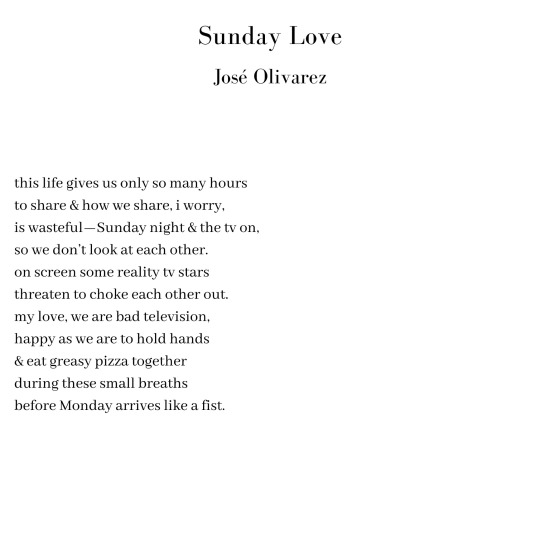

obsessed with josé olivarez love poems actually
#plus let’s get married AHHHH#i am sad a lot & love you the most#w#poetry#josé olivarez#the earth was made for lovers
2K notes
·
View notes
Text

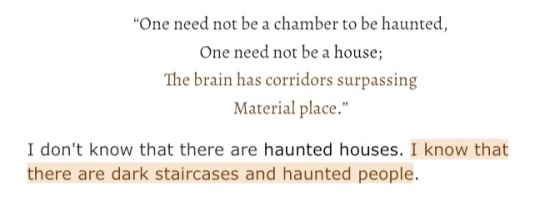
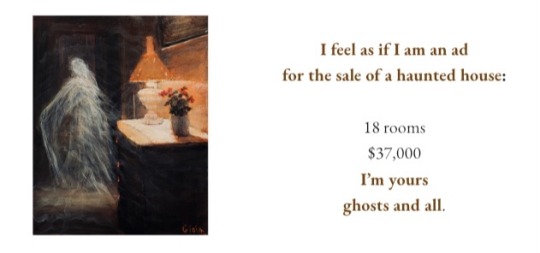



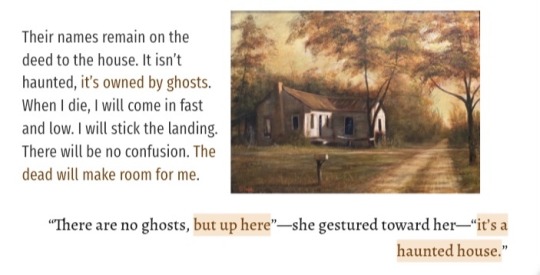

why are you haunted?
creature, half•alive // why be happy when you could be normal?, jeanette winterson // one need not a chamber - to be haunted, emily dickinson // robert breault // midnight visitor, dean gioia // real estate, richard brautigan // the bloody chamber and other stories, angela carter // i'm broke and mostly friendless, and i've wasted my whole life, heather havrilesky // ghost i, christina marie brown // john koenig // velocity, dean koontz // ghosts in the attic, cosimo s. // real estate, richard siken // remaining, dean gioia // tomorrow, and, tomorrow, and tomorrow, gabrielle zevin // haunted womanhood, heather havrilesky // haunting of night vale live show
#web weaving#web weave#on being haunted#haunted houses#ghosts#poetry#richard siken#emily dickinson#books#quotes#literature#parallels#compilation#lately i've felt a lot like a haunted house#i just think i'm made of ghosts
1K notes
·
View notes
Text

go to sleep (2011) - helen walsh
"slutting myself out for the fnaf movie"
#this is an autobiography#im so fucking excited#has anyone seen saw x#is it good#i have yet to see it#sorry have not been active#i say that a lot#anyway#enjoy#fnaf#blackout poem#blackout poetry#author#book#poetry
1K notes
·
View notes
Text

So uh. How about that time skip huh. (Corvus composing and performing the best track in the show was so hot of him btw if you care)
#sorvus#I need Corvus backstory now you can’t just play cello on screen like that and not tell me your life story#dragon prince#the dragon prince#does he KNOW he played the best track in the show over one of the most incredible moments of the show??. I don’t think he knows#Soren writes poetry about him btw#and takes him to see that fucking hollow tree he talked about in Changing Of The Guard#go read it if u haven’t I’m literally insane#Yknow that feeling when it means a lot. to ezran.#to the king. mhm.#soren tdp#Corvus tdp#the dragon prince soren#the dragon prince Corvus
700 notes
·
View notes